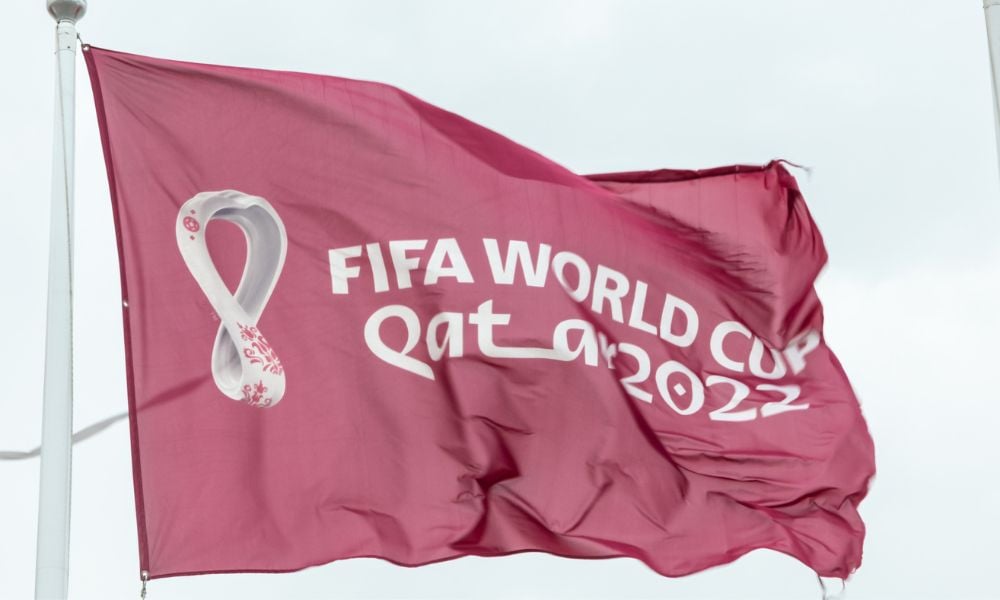
How can employers pre-empt any legal issues ahead of Canada's first match?

With the 2022 World Cup about to kick off, fans around across Canada are anxiously waiting to see their team play for the first time in 36 years. Set to play on November 23rd at 2pm, the match is smack bang in the middle of a working day – begging the question of how employees will watch the historic game.
Employers are being urged to prepare themselves for an onslaught of annual leave requests – so much so that it might be easier, and more productive, to broadcast the game in your offices. One way of planning for any practical challenges heading your way is by drafting a watertight sporting event policy.
“Some employers may choose to create a specific sporting events policy to manage staff during big tournaments such as this, that can also be applied to all major events, such as the NBA Playoffs and Finals, Stanley Cup, and the Olympic games,” says Ramsey Aburaneh, head of digital growth at BrightHR. “These policies will typically outline an organisation’s stance on a variety of issues including flexible working and general workplace conduct for the duration of the tournament.”
Having a specific sporting events policy in place will help inform staff of any amendments to accepted working practices during the tournament and provide employers with the framework required to discipline those who fail to comply.
“Having a policy in place is just the first step and for any policy to be truly successful it must be communicated effectively,” says Aburaneh. “Therefore, those who choose to create a new policy should ensure a copy is provided to staff well in advance, allowing them sufficient opportunity to review its contents and consider the practical implications prior to the tournament kick- off.”
Legal compliance issues may also rear their ugly heads as we descend into World Cup fever. With a lot of employees working remotely, how can HR leaders be sure that their teams are actually working and not glued to their TV screens?
“Where staff are working from home or hybrid working, it is advisable that if a dip in productivity is observed – in a male employee, for example – employers do not just assume that this is because they are watching football,” says Aburaneh. “Making such an assumption, and dismissing an employee on that basis, without following a proper procedure could lead to claims of discrimination or unfair dismissal. Instead, managers can deal with the situation on a case-by-case basis, taking the employee’s specific situation into account – it may be that they are experiencing burnout or stress.”
While you might want to be a bit more lenient on employees during sporting match season, that doesn’t mean that anything goes. For instance, if an employee turns up to work drunk the day after an important match, you need to deal with that the same way you normally would.
“Rules should not be made more flexible just because of the World Cup,” says Aburaneh. “Check the Alcohol and Drug Free Workplace Policy. This is likely to state that an employee who turns up for work drunk will be sent home because they are unfit for work, especially if work involves driving or handling heavy machinery.”
How will you deal with World Cup fever in your organization? Tell us in the comments.